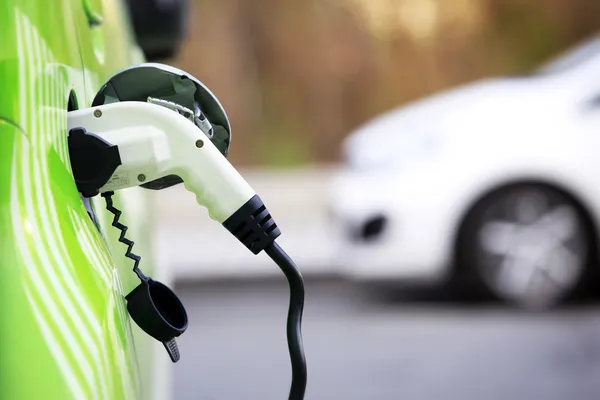By Rob Meyne
- April 10, 2024
- 5-min read
If you want yet another example of how freedom dies, spend fifteen consecutive seconds considering the EPAs’ recent rule that will require the death of internal combustion engine vehicles.
The insidious nature of the creeping bureaucratic state has been detailed by people as varied as Ronald Reagan, Ayn Rand, and anyone sentient and intelligent enough to pay attention.
The EPA is the Devil’s Spawn. It was created under President Nixon, as a paean to the far left who thought all Republicans wanted to kill puppies, poison water, and finish it all over a heaping plate of Whooping Crane Helper. Nixon was, some would say, suckered into the con that you can get people who hate you to like you just by being more like them.
It seldom works, and old Tricky Dick lived long enough to realize his idea of empowering a bunch of unelected bureaucrats to regulate every small detail of our private lives, all in the name of saving the planet, has cost us much and not produced enough.
The EPA has gone to court to argue they have the power to regulate CO2. CO2 is, of course, a naturally occurring substance, without which life would not be possible. It amounts to a total of about 0.04 per cent of the atmosphere (that is four one-hundredths of one per cent). We exhale it, you and I, as do all animals. Plants can’t live without it. If Co2 disappeared, so would life. But we are to believe it is the enemy. Sure, yeah, let’s pretend it is evil and let some clown in DC make six figures bitching about it.
So now comes the most damaging, unintelligent, and eventually unpopular rule in the history of DC. It will result in the banning of cars and trucks, as we have come to know them. You read that correctly.
The rule will force American car companies to produce more electric vehicles, and fewer gas-powered ones, resulting in a de facto banning of traditional vehicle by 2032. You read that right. Eight years from now, everyone will be expected to go for EVs.
If you want a good summary, see the piece in Real Clear Policy, April 8, by analyst John Miltimore. It is clear and compelling. He says, “Forcing automobile companies to expand production of their least-profitable product lines at the expense of their best-performing ones is economic madness.”
We are told electric vehicles are the future. Maybe, but the economics of it will have to magically change. Ford, last year, lost about $5 billion dollars on their electric vehicle business. Sales of EVs have slowed. They pile up in car lots, waiting for people to buy them. Even with the feds PAYING people to buy EVs, through massive tax credits, demand for them is tepid.
In addition, if you consider all aspects of the production, use, and disposition of a product – which, if you are competent, is essential – you find that electric vehicles provide few, if any, advantages that can benefit the environment.
To summarize a complicated issue, let’s offer a bulleted list of the problems with giving up our cars and trucks.
• It is anti-American to tell people what kind of cars they can buy.
• EVs do NOTHING to improve CO2 levels. Why? Because an EV is a way of using energy, not a way of producing it. Most electricity is produced by using fossil fuels. If EVs are powered by green energy, fine, but the issue is how the energy is produced, not how it is used.
• The electric grid can’t handle it. The grid is already in need of an estimated $3 trillion upgrade, just to prepare it for everyday needs. Put another way, our electric generating capacity is currently insufficient. Adding the demands of EVs will bring it crashing down There aren’t enough charging stations, charging takes too long, and there are often long lines. The growth of Artificial n Intelligence will greatly increase our need for electricity, even if we still with traditional vehicles.
• Many EVs simply don’t work in very cold environments. Imagine you have an $80,000 electric vehicle, live in Minneapolis, and it just doesn’t work. Would you still be happy?
• People can’t take long trips in them without adding hours or days to their itinerary.
• The production of EVs has a much larger carbon footprint than the production of traditional vehicles. Before it ever leaves the lot, a Tesla has done more harm to the environment than a Silverado or Corvette.
• The production of battery cells involves extensive damage to the planet. Oh, and to humans. Young children, slave labor, are used to mine the rare minerals used in EV production. Literally, some child in Africa has put his life and health on the line so the elites in Malibu can drive their Rivian to Whole Foods.
• The average cost of an EV today is $60,000. You could buy two Hyundai Elantras, good cars that get good mileage, or one EV.
• Finally, most importantly, PEOPLE DON’T WANT THE FRIGGIN’ THINGS. The market is never wrong. If EVs were better than traditional vehicles, people would be buying them. When, and if, EVs become better, demand for them will increase. Government is usually wrong when it tries to interfere with the marketplace just to pursue a political agenda.
The good news? If you currently own a gas-powered vehicle, hold on to it. Stick it in a garage and wait if you want. But keep it. It is only going to go up in value. Just as used cars have gone up in price since the supply chain went belly up during COVID, since parts are scarce and new cars harder to find, existing gas-powered cars will be more valuable in a few years. As America realizes they are going the way of the Dodo Bird, they will be harder to find and more expensive.
As the internal combustion engine dies, so will mobility. It is a certainty that, if the rule is allowed to stand, your kids will never know what it is like to be able to hop in the family sedan and take a cross-country trip with your grandchildren. Even the idea of taking a drive up the coast on Highway One, a day trip to the Grand Canyon, or an afternoon trip to King’s Island will become impossible for most people. The cars will be too high, electricity too scarce, range too limited, charging times too long, and charging stations too few. We will lose the freedom of travel.
This used to matter, back when we were a genuinely free nation, which we no longer are.

